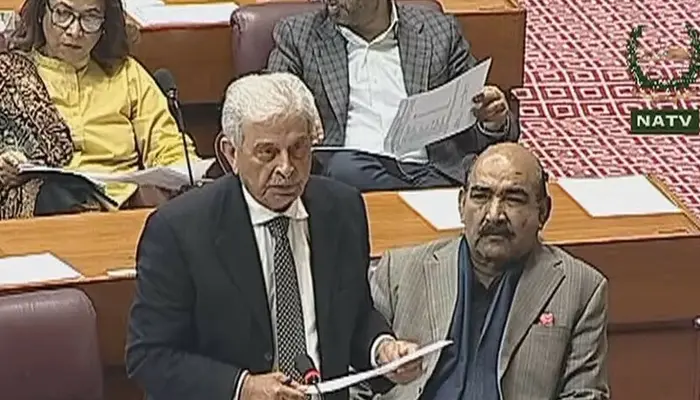The National Assembly has passed the PECA amendment bill, sparking widespread protests from journalists and opposition lawmakers. The bill introduces new regulations under Pakistan’s cybercrime laws, aiming to combat fake news and regulate social media. However, critics argue that it threatens freedom of expression and press freedom.
Journalists and PTI Protest
Journalists staged a walkout from the press gallery, while PTI lawmakers exited earlier, protesting party founder Imran Khan’s incarceration. Opposition lawmakers, including Jamiat Ulema-i-Islam Fazl, also opposed the bill. The amendment was presented by Federal Minister for Industries and Production Rana Tanveer Hussain, despite criticism over the lack of consultation with stakeholders.
Key Provisions of the Amendment
The Prevention of Electronic Crimes (Amendment) Bill, 2025, introduces stringent penalties for disseminating “fake news.” A new section, 26(A), proposes up to three years of imprisonment or a fine of Rs. 2 million for sharing false information that causes panic or unrest.
The bill also establishes the Social Media Protection and Regulatory Authority to oversee content on digital platforms. This body can block or remove content deemed offensive, anti-state, or false. It can also require social media platforms to register and comply with regulations. Additionally, a Social Media Complaint Council will address grievances and ensure compliance with the law.
Backlash from Journalists
Journalists’ organizations, including the Pakistan Federal Union of Journalists (PFUJ), condemned the amendments. In a joint statement, they called the law an attack on press freedom. They criticized the lack of consultation and warned that the bill could suppress media voices, especially on social media.
PFUJ leaders described PECA as a “black law” designed to curtail dissent. They urged the government to withdraw the amendments, warning of nationwide protests if the law is implemented.
Read: IMF Recommends Mini-Budget, Pakistan Opts for Alternative Measures
Digital Rights Activists Raise Concerns
Digital rights activists have also expressed alarm. They argue that the law’s vague definitions of fake news and disinformation could lead to misuse. Nighat Dad, a human rights lawyer, criticized the lack of transparency during the drafting process. She highlighted the broad powers granted to authorities and questioned the bill’s ambiguous parameters for identifying fake content.
Usama Khilji, director of digital rights group Bolo Bhi, called the amendments a step toward authoritarianism. He warned that criminalizing disinformation would have a chilling effect on free speech, making journalists and social media users vulnerable to persecution.
Government’s Defense
Information Minister Attaullah Tarar defended the bill, stating it aims to regulate digital media and protect against child pornography and deepfakes. He clarified that the amendments would not target registered journalists. Tarar argued that digital media lacks regulation and accountability, creating a parallel economy without editorial oversight.
He assured journalists that the government is open to dialogue and consultation to address their concerns. Tarar also emphasized the need for transparency and accountability in digital media.
The Road Ahead
As criticism mounts, the government faces growing pressure to reconsider the PECA amendments. Journalists, activists, and opposition parties are united in their demand for safeguards to ensure the law does not undermine fundamental rights.
Follow us on Google News, Instagram, YouTube, Facebook,Whats App, and TikTok for latest updates
